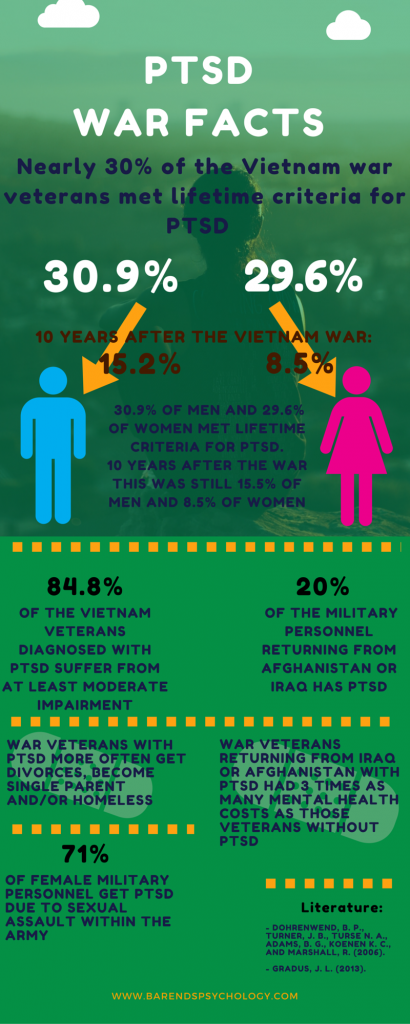PTSD questionnaire
This PTSD checklist is not made for diagnostic purposes. The checklist can be used to see whether or not you or your friend may meet the criteria for post-traumatic stress disorder. Sometimes you may think you suffer PTSD, but in reality you don’t. In other cases people deny having PTSD, but suffer a lot from its symptoms. A problem with PTSD is that it doesn’t go away by itself. You may avoid PTSD-triggers, but the pain is still there. And when you can’t avoid the PTSD-triggers, you may suffer a lot! So use this questionnaire wisely and contact a professional for help if the test results show you may suffer PTSD.
After filling in the checklist you will see your score and what the score represents. The PTSD checklist is anonymous and takes only 3 minutes of your time.
Scroll down to take the quiz immediately.
Someone can develop PTSD after experiencing, seeing, or hearing about a traumatic event. Sometimes PTSD develops quickly after the traumatic event, sometimes it takes a few months. Some people don’t develop PTSD at all, which makes PTSD difficult to understand for a lot of people. Fortunately, we are all unique human beings, and we all process information in our own way. This means that Person A experiencing a traumatic event may process the information of the traumatic event correctly, whereas Person B may process it wrongly which leads to a PTSD. For more information about PTSD, please click on the proper link below.
For information about PTSD see:
At Barends Psychology Practice, we treat Post-traumatic stress disorder Online and in person (in Ljubljana). Book your first, free of charge, session now. Go to Contact us. (Depending on your health insurance, treatment may be reimbursed).
(Advertisement. For more information, please scroll down.)
PTSD checklist.
This quiz is anonymous and takes only 3 minutes of your time.


